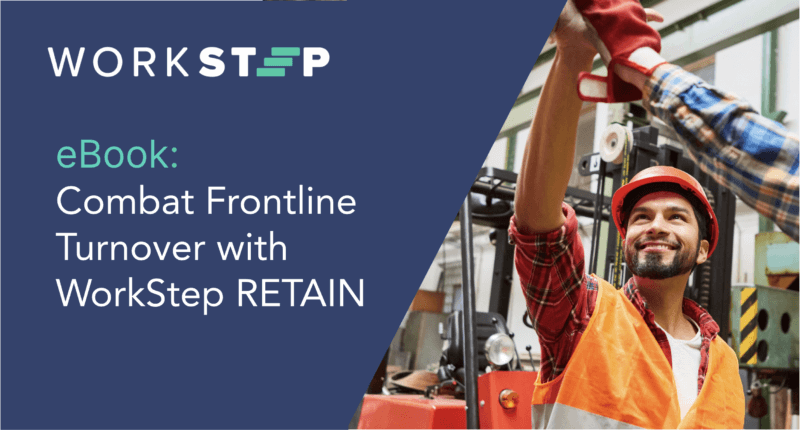The supply chain sector has always been an exercise in agility, but 2025 is testing its limits. With a new U.S. administration pushing sweeping executive orders, companies across manufacturing, transportation, and retail are facing a regulatory environment that’s shifting at breakneck speed.
Supply chain organizations are already feeling the effects of these changes. Labor shortages, cost volatility, and compliance pressures are escalating, and organizations that fail to react in real time risk losing ground. To survive in this new world, organizations must take a proactive, tech-driven approach to workforce engagement and operational adaptability.
Let’s break down the biggest policy shifts and their direct implications for supply chain businesses:
Key changes reshaping supply chain operations
1. The workforce squeeze: Hiring freezes & immigration shifts
- A federal hiring freeze is locking up government roles in regulatory and infrastructure management. Expect delays in permitting, customs processing, and compliance approvals—slowing down logistics and adding inefficiencies to supply chains.
- On the flip side, if agencies are disbanded and strict regulations are rolled back, this could help speed up compliance checkpoints.
- Stricter immigration policies are tightening the pipeline of foreign talent, particularly in specialized roles. If you rely on a diverse talent pool, securing skilled labor will become an uphill battle.
Impact: Companies will need to do more with fewer resources while ensuring their current workforce remains engaged, productive, and retained.
How WorkStep can support: WorkStep can help organizations identify and address turnover issues in real-time to keep skilled and specialized workers on the job, minimizing additional hiring needs in the event that foreign talent pipelines are impacted. WorkStep can also support identify risks from the frontline that could impact safety and compliance regulations.
2. Rising costs: Tariffs & trade disruptions
- New tariffs on imports are shaking up sourcing and procurement strategies.
- Potential retaliatory tariffs from trade partners could drive up costs further, straining margins for manufacturers and retailers alike.
Impact: Organizations must reassess their supply chain risk exposure and explore new procurement strategies. Real-time workforce and operational insights will be critical to making cost-effective decisions.
How WorkStep can support: WorkStep helps organizations by uncovering opportunities to drive workforce efficiency. This supports organizations allocating their resources effectively, focusing on the right programs and initiatives to support their existing workforce. Our AI-powered analytics surface productivity trends and workforce risks, enabling smarter labor allocation and cost-effective decision-making.
3. Regulatory uncertainty: Compliance & DEI rollbacks
- The elimination of DEI programs in federal agencies could influence hiring and workplace policies in the private sector. While not legally binding for private companies, this signals a shift in workplace dynamics that may impact employee expectations and perception.
- A regulatory freeze means pending labor and environmental compliance updates are on hold, creating uncertainty for long-term strategic planning.
Impact: Compliance teams must stay agile, tracking regulatory updates while ensuring employee engagement remains strong amid shifting workplace norms.
How WorkStep can support: WorkStep helps organizations stay ahead of regulatory uncertainty by continuously tracking workforce sentiment and engagement, ensuring compliance teams can respond proactively to shifting workplace expectations. Our AI-driven insights provide real-time visibility into employee concerns, enabling companies to adapt policies, maintain engagement, and mitigate workforce-related risks.
How supply chain leaders can stay ahead
Staying ahead in this environment isn’t about reacting to change—it’s about anticipating it. Here’s how companies can navigate uncertainty with technology:
1. Leverage real-time workforce data
Organizations can’t afford to wait for quarterly engagement surveys to diagnose workforce challenges. Platforms like WorkStep provide real-time employee feedback, allowing companies to proactively address turnover risks, productivity issues, and engagement challenges before they escalate.
2. Optimize workforce agility with AI-driven insights
AI is becoming more essential for workforce optimization. WorkStep’s AI-powered analytics identify patterns in employee sentiment, retention risks, and operational bottlenecks, enabling leadership to make data-backed decisions in real time.
3. Proactively adapt to policy & economic shifts
With tariffs and workforce shortages on the rise, supply chain leaders need a continuous pulse on employee sentiment and operational risks. Implementing automated workforce monitoring tools ensures leadership teams stay informed on employee pain points and operational disruptions as they happen.
The bottom line: Adapt or fall behind
Change isn’t slowing down—it’s accelerating. Organizations that cling to outdated workforce management strategies will struggle to compete in an environment where real-time decision-making is no longer optional, but essential.
Supply chain leaders must embrace technology-driven workforce engagement, AI-driven analytics, and proactive risk management to remain resilient in this volatile landscape.
🔍 Explore how WorkStep helps supply chain organizations navigate workforce challenges in real time. Learn More
Additional resources
- Workforce Strategies in 2025: Preparing for the Challenges Ahead
- Presidential Transition: Business Impacts
- Changes to Business Immigration Under a New Presidential Administration
- Implementing The President’s “Department of Government Efficiency” Workforce Optimization Initiative
- Future of Supply Chains 2025
- Trump’s 2025 Executive Orders
- Supply chain outlook 2025: Key trends and risks to follow
- Littler Executive Order Tracker
- Labor Rights, Automation to Reshape Supply Chain Workforce in 2025
- People first strategies: Key to supply chain transformation in 2025
Tune into your frontline with WorkStep
With the frontline employee engagement platform that delivers the real-time insights you need to take action, retain your workforce, and drive your business forward.
Tori Cook, Senior Director of Demand Generation & GTM Operations | tori@workstep.com
Tori Cook is the Senior Director of Demand Generation & GTM Operations at WorkStep. With a proven track record of generating impactful results, Tori is passionate about sharing her expertise in operations, marketing, and workplace culture with the WorkStep blog readers.



